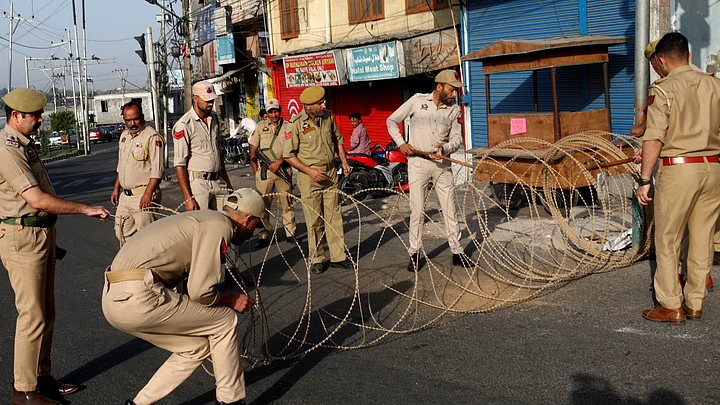The attack on innocent tourists at Pahalgam is not just an act of cowardice. It is an attack on the soul of Kashmir and Kashmiris. Through this act, the militants have struck a massive blow to the peace and tranquillity that prevailed in the Valley for the last few months.
The attack has taken place at a time when US Vice President JD Vance is on an official tour to India. It is also significant that the attack has come just a few days after the widely circulated address of General Asim Munir, the Pakistani Chief of Army Staff, to the Pakistanis settled abroad. In his address, General Munir had emphasised that Kashmir is the crown of Pakistan.
It is a given that there is involvement of Pakistan in fomenting trouble in Kashmir—and this attack might well have been planned and executed by the terrorists at the behest of their masters in Pakistan. However, we must also analyse the internal factors that may have emboldened them to execute this audacious act.
Complacency of Security Forces
It appears that the security forces had become complacent due to the prolonged lack of activity on part of terrorists.
The increased activity in the south of Pir Panjal ranges during the last one year needed more attention—and lot of troops appear to have been diverted there. The militants also must have factored in that the area would be flush with troops in about a month from now in preparation for the Amarnath Yatra—and they would then have found it difficult to carry out this type of attack.
In the past too, militants have found summers to be the most convenient period to carry out their operations.
The passes get opened, and it becomes easy to coordinate with their handlers and arrange logistics. This gives an opportunity to the sleeper cells to become active. The security forces perhaps failed to factor this in. This also is the period when large number of tourists flock to Kashmir who are the easy targets for militants.
What Were the Intelligence Agencies Doing?
The moot point is as to what the intelligence agencies were doing? Did they detect any indicators of likely action by terrorists? If so, did they share any actionable intelligence with the security forces?
Hopefully, their focus has not shifted to acquiring information about the political activities during the last few years from the actual task of acquiring and disseminating information about activities of militants.
Another important aspect is that the tendency to communalise the incident must be avoided.
Many channels are quoting unnamed sources, stating that the militants shot at the tourists after asking their names. This is contrary to the reports of indiscriminate firing by the militants.
While there is no denying the fact of involvement of Pakistan in the incident, many are already demanding punitive action on the lines of Balakot attack. However, it is important to analyse all factors properly.
If the Balakot attack and the sequence of events thereafter are analysed dispassionately, it will be apparent that the only serious back channel parlays could prevent escalation—and things spiriling out of control. Inspite of its preoccupation with problems in Baluchistan, Pakistan retains the capacity to retaliate and escalate.
This dastardly attack has once again exposed the chinks in our security grid in the Valley as well as points towards our lack of intelligence, operational laxity, and lack of coordination.
The attack was aimed to disrupt peace and create fear which it has succeded in doing. We repeatedly fail to learn lessons from the past mistakes.
There is no scope for complacency in an area that has seen conflict for such a long period—and where militants repeatedly come back to strike at their own place and time of chosing.
The attack also exposes the lack of vision of the policy planners who fail to address the inherent factors for the festering problem and think only in terms of numbers of militants killed or surrendered or seem to think that an act of Amendment to Article 370 will bring peace.
The attack is going to impact the economy of Kashmir by adversely impacting the tourism industry—which had started booming over the last few years.
It is important to gear up the intelligence machinery in the Union Territory and ensure that the security forces never let their guard down.
(Sanjiv Krishan Sood (Retd) has served as the Additional Director General of the BSF and was also with the SPG. He tweets @sood_2. This is an opinion piece and the views expressed above are the author’s own. The Quint neither endorses nor is responsible for the same.)
